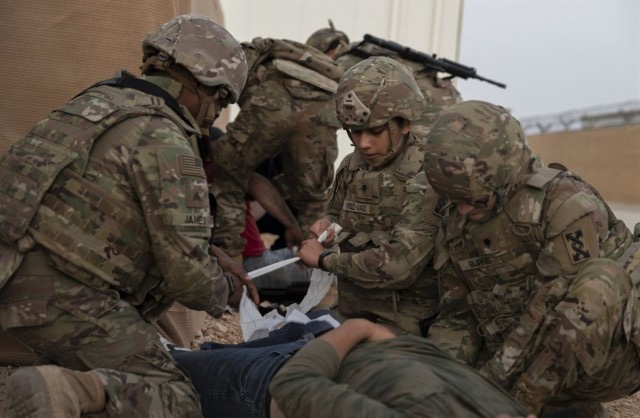
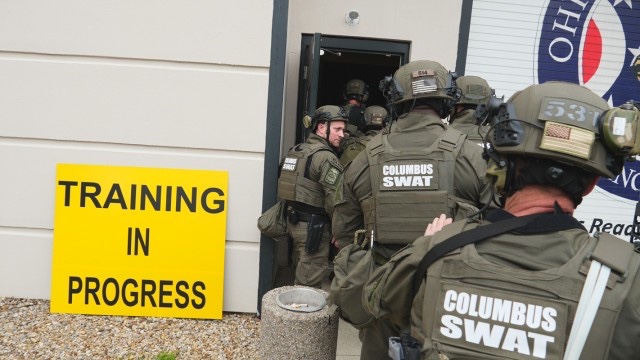
WASHINGTON — The Department of the Army is working on a new Antiterrorism Strategic Plan that is scheduled to roll out this fiscal year.
The plan, which is being coordinated with the Department of Defense, will update policy, training, exercises and how the Army analyzes and shares information about terrorism.
“The threats we faced 20 years ago aren’t the threats we face today, nor are they the threats we will face in the future,” said Maj. Gen. Duane R. Miller, Army provost marshal general. “Our adversaries are constantly evolving with the use of technology to identify vulnerabilities. It’s through this strategic plan that we hope to address any vulnerabilities and any threats we may face in the future.”
The program will help put Army civilians, contractors, Soldiers and their families on common ground with the service’s antiterrorism goals and objectives moving forward, he added.
The Army’s Antiterrorism Division worked with multiple federal organizations, including the Department of Homeland Security, as they developed the antiterrorism program. This allowed them to share information on best practices and emerging technologies that could pose a threat.
Training, education and awareness remain the key elements in the service’s efforts to prevent terrorism at home and overseas, Miller said.
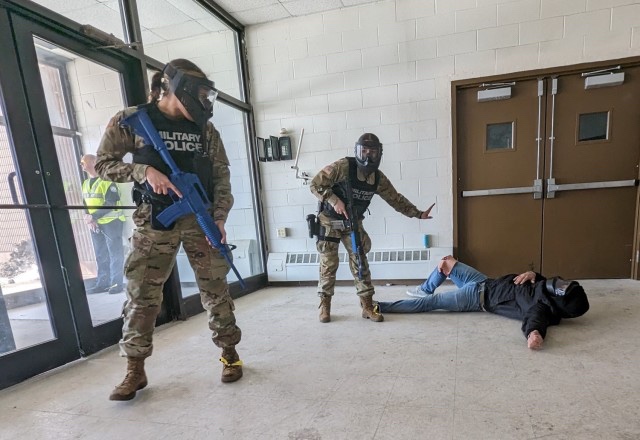
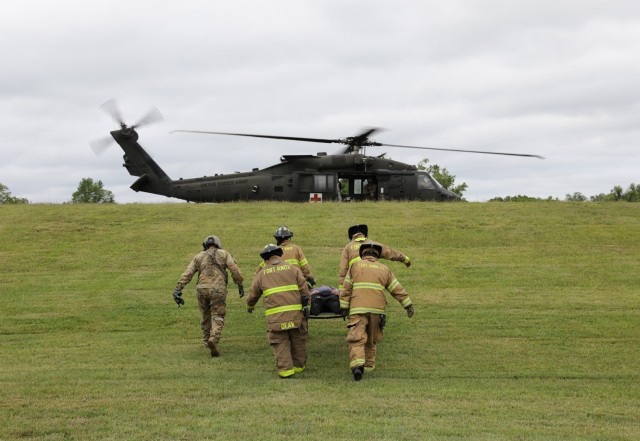
“The more aware our community members are, the more likely we are to obtain advanced warning to defend against terrorist attacks,” he said. “Constant vigilance, timely threat reporting, knowledge of antiterrorism prevention measures and Army leadership advocacy are vital to sustained prevention.”
August is dedicated as Antiterrorism Awareness Month to educate members of the Army on the threat and provide information on how to prevent acts of terrorism.
“Soldiers who are aware of the risks and who report concerning behavior can help prevent threats from impacting the local community,” he said. “Don’t be a bystander. Do your part as a member of the team.”
According to Miller, the fight against terrorism has shifted in recent years from terrorist groups overseas to individual domestic terrorists fueled by extremist ideologies.
To combat the evolving threat, the Army has updated the antiterrorism program and continues to look for ways to improve protection efforts. The service is continuing to field and expand the capability of the Joint Analytic Real-time Virtual Information Sharing System.
JARVISS is a desktop and mobile application that pulls information from more than 80,000 sources to give commanders real-time data on potential threats, so they can make informed decisions.
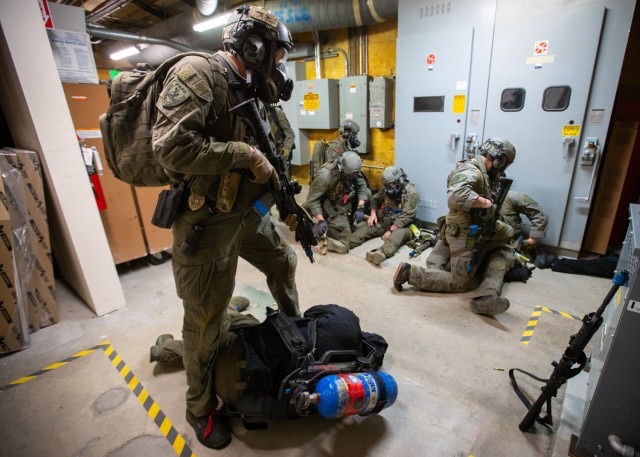
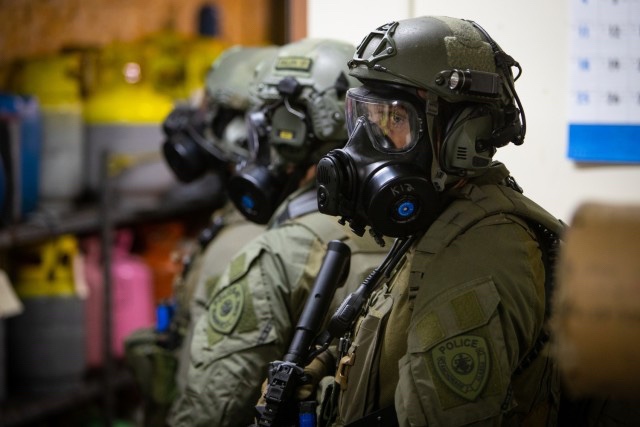
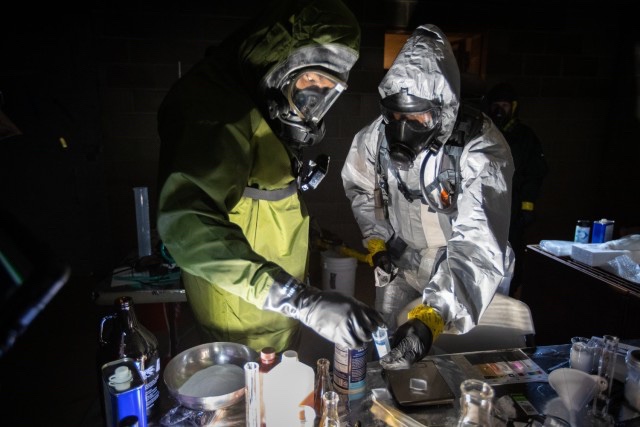

Along with advances in technology, the Army and the National Guard continue to conduct annual exercises to stay ready. The Ohio National Guard held their emergency response exercise in April with support from local emergency services.
The exercise evaluated how the responding agencies can affect control and containment of the situation as well as the effectiveness of the facilities’ response capabilities.
National Guard units from 12 states along with multiple federal and local agencies completed an emergency response exercise at the Anchorage Fire Department Fire Training Center in June. The training is designed to maintain readiness, validate response procedures and collaborate with partners.
These efforts, along with others throughout the service, allow the Army and local partners to stay vigilant in the fight against terrorism.
“We must understand the threat and be prepared to prevent any impact on Army readiness,” Miller said. “We’re confident the outcomes from implementing the strategy will align policy, training, doctrine, partnerships and information sharing to meet the challenges of terrorism over the horizon.”
Army personnel can report suspicious behavior to their chain of command or submit a report online through INSCOM’s iSALUTE form.
By Christopher Hurd, Army News Service
Photos by Jenn DeHaan, Mike Strasser, SSG Aven Santiago, and SPC Cecilia Soriano
Alaska National Guard photos by Robert DeBerry


“According to Miller, the fight against terrorism has shifted in recent years from terrorist groups overseas to individual domestic terrorists fueled by extremist ideologies.”
Well that’s going to generate some conversation.
FedGov definition of an extremist:
Pro family
Pro free speech
Pro constitutional currency
Pro parental school choice
They’re almost as dangerous as climate change!
“According to Miller, the fight against terrorism has shifted in recent years from terrorist groups overseas to individual domestic terrorists fueled by extremist ideologies.”
Knew it. Was going to say something snarky about FedSpeak, but I don’t need to. It’s right there.
***cough*** Posse Comitatus Act***cough***
Did you just call me a pussy communist?
Silly shit, but yeah go ahead call in the evil mom’s giving the school board an earful. Fuck
This.
How is the Army going to help the FBI round up, I mean, protect against terrorists like Ashli Babbitt or Vicki Weaver (even if they’re unarmed or holding a six month old baby), if they’re all suffering from myocarditis and blood clots from the experimental mRNA Covid poison poke they were all forced to take, but which now has been proven to be more deadly than the virus?